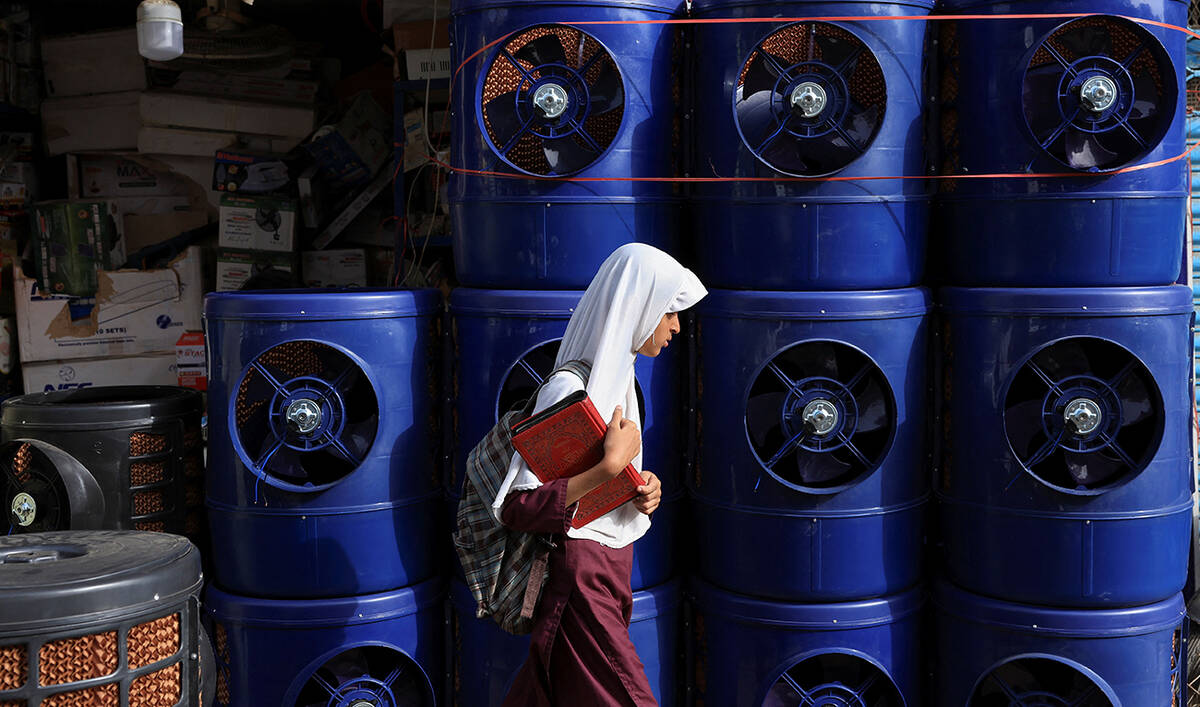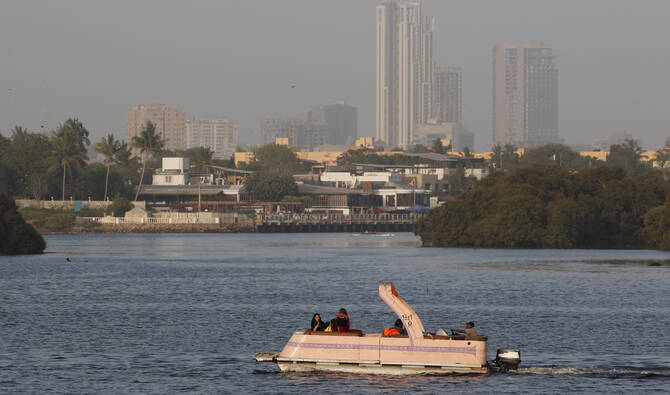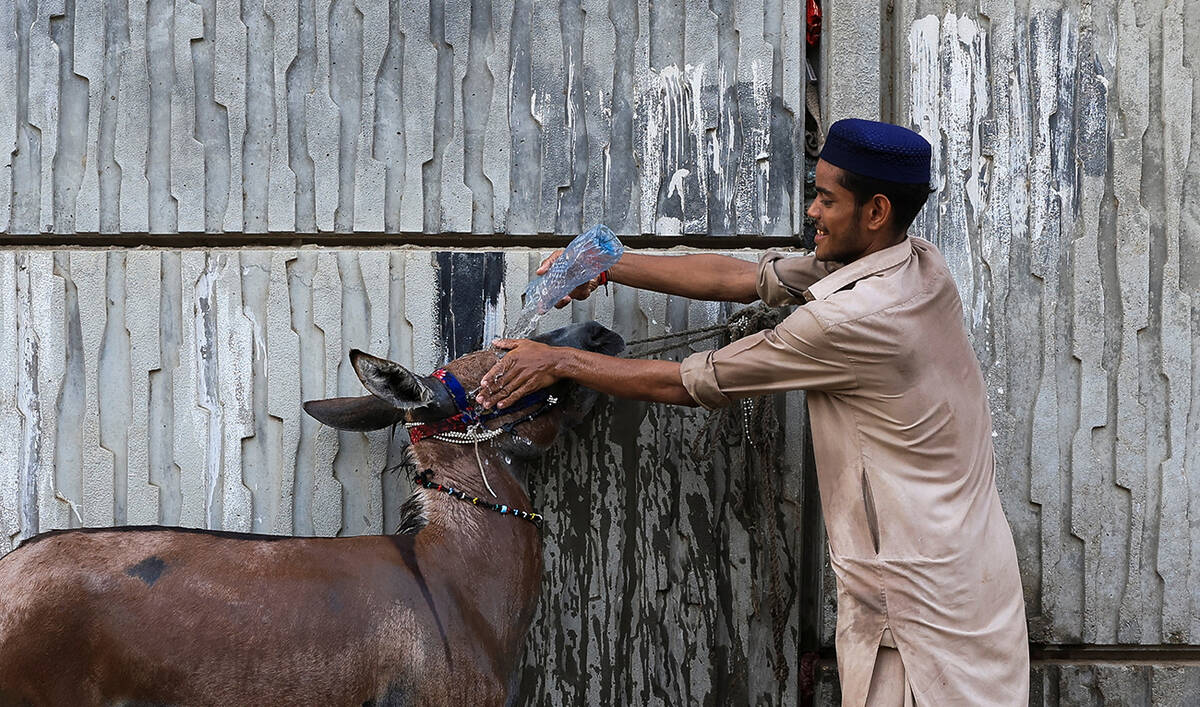KARACHI: On April 22, Interpol informed Pakistan that a ship carrying 1,500 tons of hazardous mercury sludge was making its way toward Pakistani waters after being denied permission to dock in Bangladesh.
Despite Interpol’s warnings, the decommissioned FSO Radiant docked at a ship-breaking yard in the coastal town of Gadani in Pakistan’s southwestern province of Balochistan on April 30.
Yard workers, unaware of the toxic material on board, began their work demolishing the ship. It was only in late May, 20 days after the vessel had beached, that they became aware of the danger to their lives and health after the story was leaked on media, prompting the Environmental Protection Agency to seal the plot where the ship was anchored and order an inquiry.
By that time, the workers had already cut down the tanker’s stern.
On May 26, a local deputy commissioner, Hasan Waqar Cheema, ordered a probe into who was responsible for the vessel’s docking. The provincial Environment Protection Agency’s fact-finding committee immediately collected samples from the ship.
This week, Liaquat Shahwani, a spokesperson for the Balochistan government, said the inquiry report was ready and had been submitted to “relevant authorities.” He declined to share the investigation’s findings. But dozens of interviews with officials conducted by Arab News revealed none of the relevant departments are willing to concede responsibility for how Radiant was allowed to anchor in Pakistan.
According to Imran Saeed Kakar, a deputy director at EPA, responsibility for the beaching of a vessel lies with the ministry of defense.
A vessel’s owner is required to get approval from EPA, the Balochistan Development Authority (BDA), and the customs and explosives departments before it can be dismantled, Kakar said, but only once the ship is beached.
“The work of these four government agencies starts only after the vessel is beached and granting permission for beaching is the responsibility of the ministry of defense,” he said.
When contacted, a spokesperson for the ministry of defense said permission for the ship to anchor came from the Pakistan Maritime Security Agency (PMSA), a subordinate agency of the ministry of defense. Balochistan government spokesperson Shahwani also said beaching was “the domain of the federal government and its subordinate security agency, Pakistan Maritime Security Agency.”
A PMSA spokesperson declined to comment despite repeated requests over weeks.
However, a ministry of defense statement sent to Arab News after the publication of the story said no official from the ministry had discussed the matter with “any press/media official or [the] writer of [this] article.”
“The concerned [government] authority is rightfully clued up regarding beaching of MT CHERISH (FSO RADIANT) at Gadani,” the statement said, adding that the ministry of maritime affairs had constituted a joint investigation committee to investigate the issue.
IGNORED WARNINGS
Little is known about the ship to begin with. website vesselfinder shows Radiant belongs to a ‘Som Sg & Tdg LLC’.
EPA’s Kakar said the ship was Indonesian though Arab News could not independently verify this. He said it was “a kind of storage vessel which floats at the place of drilling, and in which oil is stored till oil tankers arrive and take it ahead.”
“Usually after vessels are auctioned for dismantlement, these are washed but in this specific case, it seems this vessel was sold without washing,” Kakar added.
How the ship landed up in Pakistan is still murky.
Interpol wrote a letter to Pakistan’s Federal Investigation Agency (FIA) on April 22 saying a “hazardous waste contaminated vessel” was traveling to the country’s waters and planning to “illegally dispose 1,500 tons of mercury contaminated oil sludge.” A copy of the letter is available with Arab News.
Correspondence between different government departments — also available with Arab News — shows that the federal ministry of maritime affairs had informed the ministry of defense about Interpol’s warning a day before the vessel beached at Gadani on April 29.
And yet, the ship was docked and ship-breaking work was allowed to commence despite the warnings, with yard workers now saying they feared for their lives and were reminded of 2016, when Gadani became the site of a deadly explosion and fire that killed 26 workers who were dismantling an oil tanker.
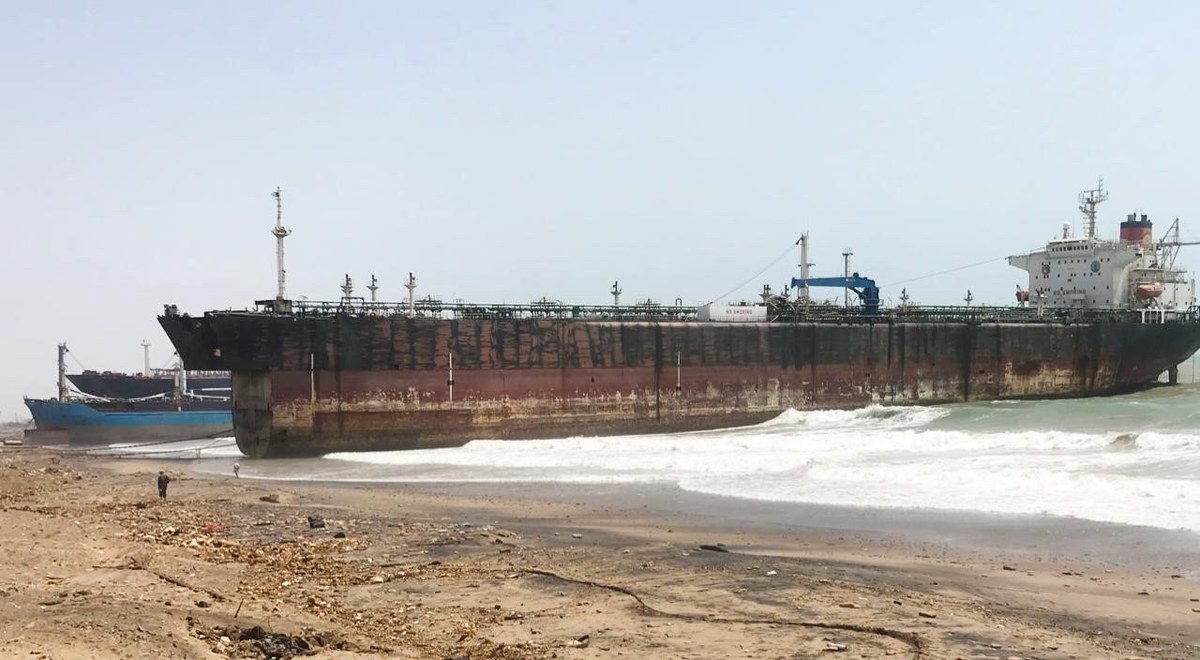
A decommissioned FSO Radiant docked at a ship-breaking yard in the coastal town of Gadani in Pakistan’s southwestern province of Balochistan on May 25, 2021 (Photo courtesy: Naimat Khan via Balochistan Environment Protection Agency (BEPA))
That tanker had been cleared at Gadani by the same clearing agent, a man named Javed Iqbal, who was responsible for clearing Radiant last month.
Iqbal did not return repeated phone calls or texts seeking comment.
“STRICT ACTION WILL BE TAKEN“
Ship-breaking is considered one of the world’s most dangerous professions by the International Labour Organization, with accidents and fires common. A majority of the world’s ships land for scrapping on the beaches of Pakistan, India and Bangladesh, with thousands of workers risking their lives every day tearing down ships at Gadani beach on the Arabian Sea coast.
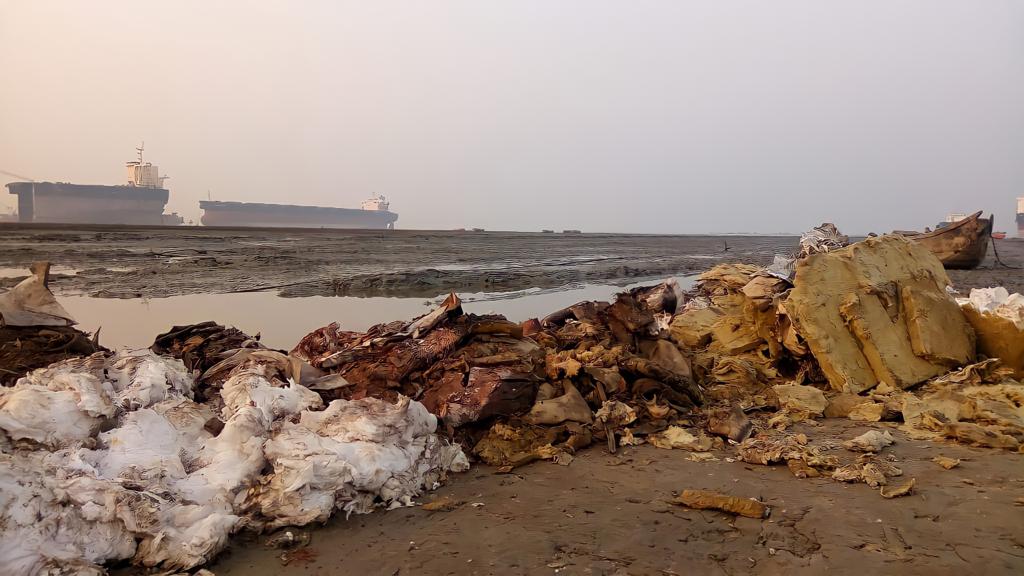
In this photo posted on May 31, 2021 by NGO Ship breaking platform shows the wreckage of a ship in Gadani beach near Karachi, Pakistan. (Photo courtesy: NGO Ship breaking platform)
The ship breaking yard is one of the biggest in the world, with al kinds of aging vessels, from Japanese ore carriers to Italian passenger ferries, run ashore for scrapping.
“The November 2016 blast flashed before our eyes when we heard about the ship with hazardous mercury,” Gul Muhammad, who has been working at the Gadani yard for two decades, told Arab News. “After 2016, safety measures were put in place, and those gave us and our families hope that we will not be burnt alive.”
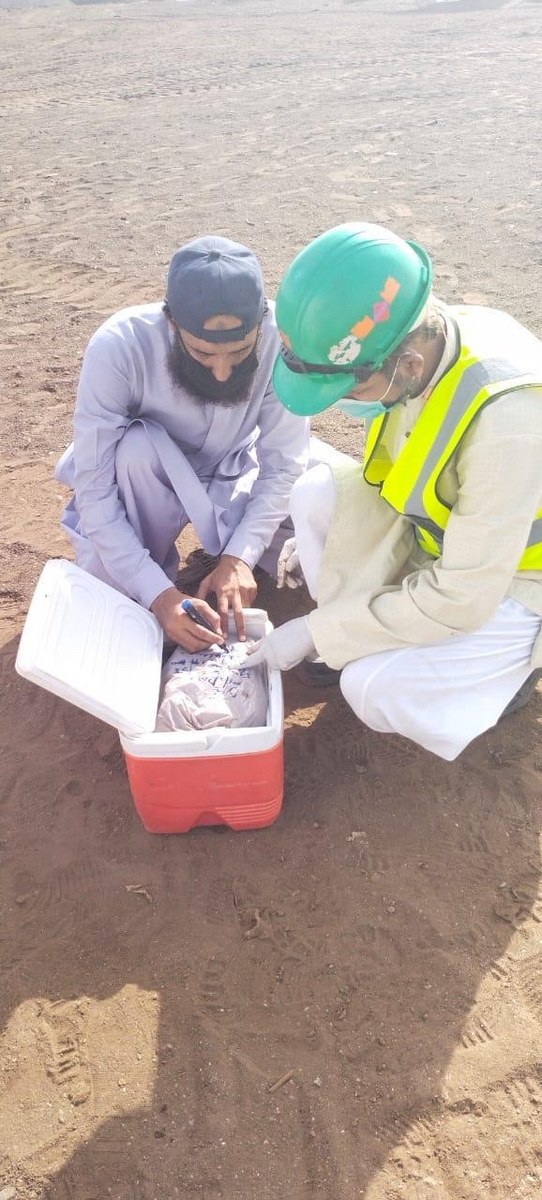
Officials from the Balochistan Environment Protection Department collet samples of hazardous mercury sludge from a decommissioned ship, FSO Radiant, docked at a ship-breaking yard in the coastal town of Gadani in Pakistan’s southwestern province of Balochistan, on May 25, 2021. (Photo courtesy: Naimat Khan via Balochistan Environment Protection Agency (BEPA))
That hope wore very thin last week, he said.
Oil contaminated with high levels of mercury presents a possibly fatal health risk to people coming in close contact, and mercury poisoning is associated with serious medical conditions ranging from disorders of the neurological system to skin, kidney and lung disease.
“If mercury is found in the samples taken for testing as reported by Interpol, the ship will be disposed of in accordance with international guidelines,” EPA’s Kakar said: “Strict action will be taken against the owner.”

Officials from the Balochistan Environment Protection Department seal a ship-breaking yard in the coastal town of Gadani in Pakistan’s southwestern province of Balochistan, on May 25, 2021 (Photo courtesy: Naimat Khan via Balochistan Environment Protection Agency (BEPA))
Meanwhile, Gadani workers say their safety has yet again been compromised.
“A vessel which couldn’t get dismantled anywhere else manages to reach Gadani?” Muhammad Saleem, an official of the Shipbreaking Workers’ Association said, adding that action had only been taken once the story was leaked to media, by which time workers had already cut down the stern of the ship.
“It was at this same stage that the fire broke out in the ship in 2016 also,” he said. “Had the news not been leaked, the work might not have been stopped.”





